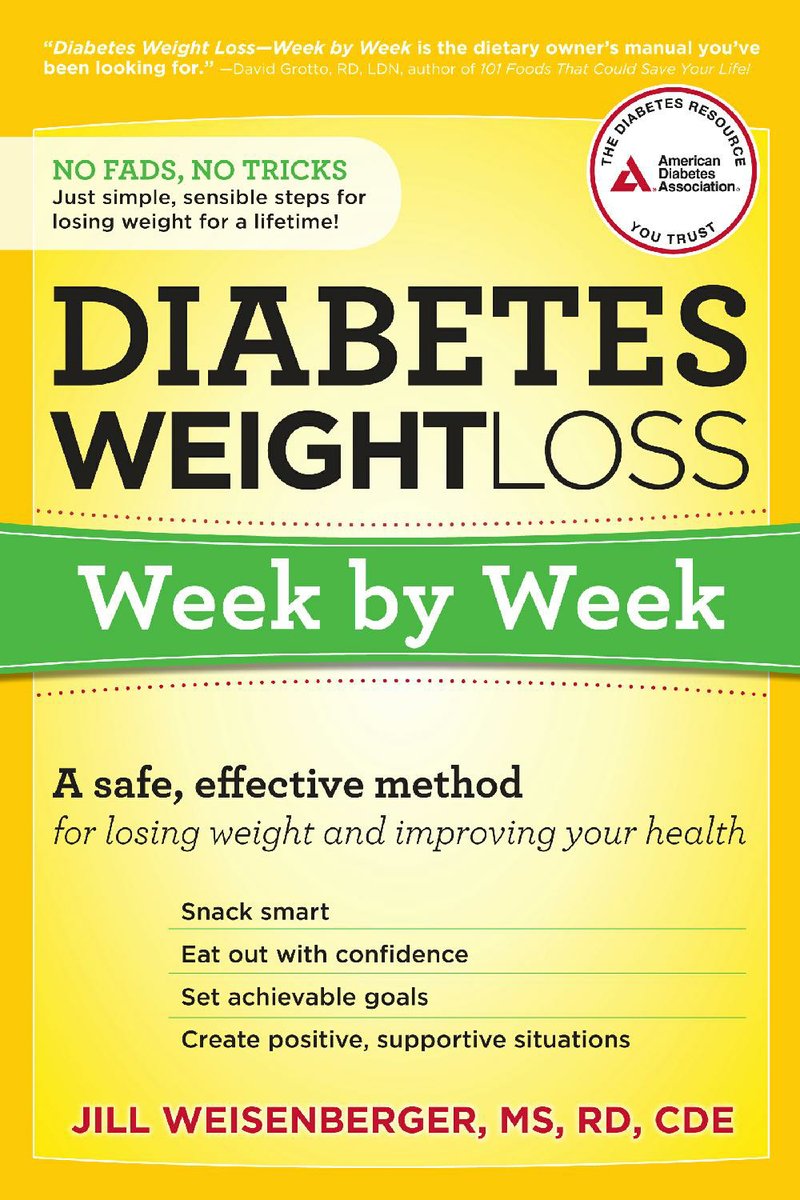You will never win if you never begin.
-- Robert Schuller
This week I want to introduce the book Diabetes Weight Loss Week by Week, which I plan to follow for the next year.
It's broken down into 52 weeks worth of chapters and was written by registered dietitian Jill Weisenberger as a "simple and sensible guide to losing weight and improving our health."
Along with our eating and exercise efforts, there are skills we can learn to help handle ourselves in the kitchen, grocery store and restaurants. As the author says, a strong set of skills will serve us better than trying to rely on willpower.
I know where willpower has always gotten me.
Some folks may wish to work ahead in the book, but I have decided to focus on one week at a time. But I'll handle the chapters two weeks at a time here, for those who want to follow along.
My first week will be Aug. 17 with chapters 1 and 2.
Weisenberger suggests consulting a dietitian or diabetes educator if possible. If you can't do that, the website of the American Diabetes Association (diabetes.org) has a wealth of information on diabetic eating and health issues.
She also recommends creating a "motivation kit." It's a place to keep photos, magazine articles, meaningful sayings, affirmation cards or anything else that will encourage us on our journey. I bought a clear plastic, shoe-box size container with a lid to hold my kit.
Then there's the sticky issue of weighing. If you can use the scale as a guide and not a judge, weigh once a week. If weighing is a source of anxiety, weigh once a month or not at all.
Our weight should never been seen as a reflection of who we truly are.
Weisenberger offers a set of SMART principles to help set goals for our journey. Once we define our goals, we need to write them down and read them often.
But what does SMART stand for?
• S is for specific. Avoid vague goals.
• M is for measurable. Can you measure your success?
• A is for action oriented. What action will you take?
• R is for realistic. Is the goal attainable and can we achieve it with the resources we have?
• T is for timely. Know when you'll reach your goal and when you will assess your results.
On your mark, get set, go!
DONATION INNOVATION
The American Red Cross is hoping to make the blood donation process more convenient with the introduction of the RapidPass online health history system. It became available in Arkansas on July 27, and we're one of the first states to try it.
The program is meant to streamline the donation experience by allowing donors to answer the required pre-donation reading and health history questions online from the convenience of a home or office computer (remembering that, at most companies, the office webmaster sees all).
But they want us to use it only on the day of donation, and in privacy, since some of the information is personal and somewhat sensitive. On the day you plan to donate, go to redcrossblood.org/rapidpass, complete all the questions, and print the pass or save it to your mobile device.
RapidPass is convenient, but it's not the same as setting up an appointment, so make sure to do that first.
Email me at:
rboggs@arkansasonline.com
ActiveStyle on 08/03/2015
